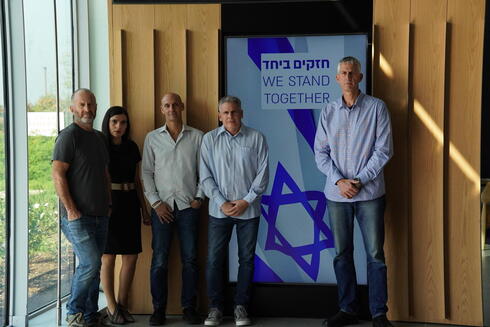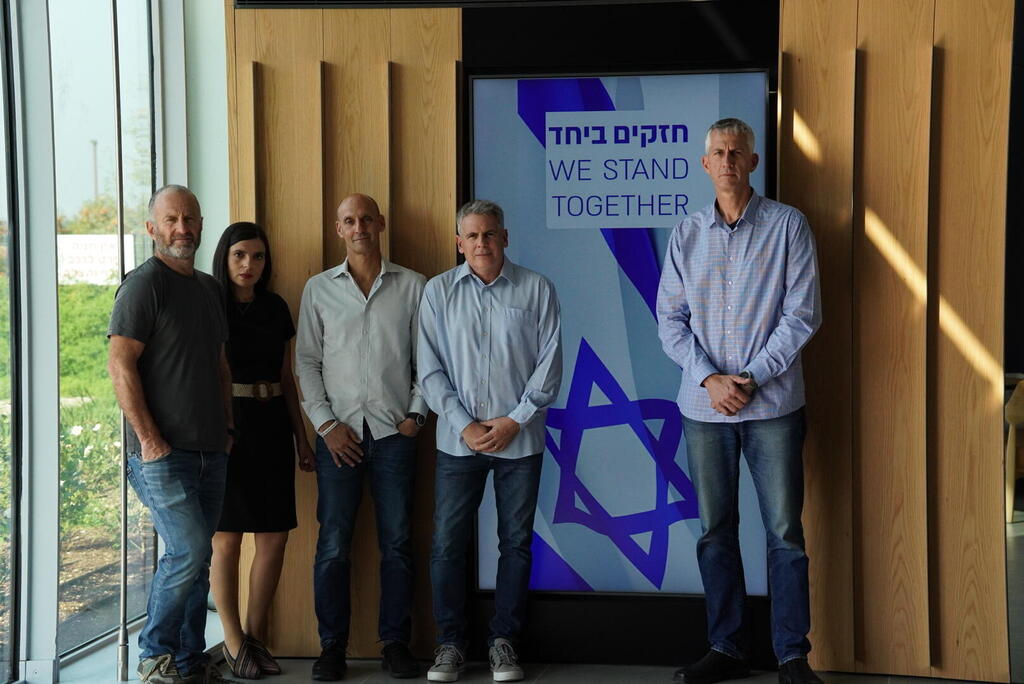
Venture Capitalists launch ‘Iron Nation’ emergency impact fund for Israeli startups
Its mission is to ensure that Israeli tech startups that have already established venture backing can continue to grow during wartime.
A group of venture capitalists from around the world have announced the launch of Iron Nation, an emergency impact fund to ensure the continuity of early-stage Israeli startups amid the country’s war with Hamas. The fund is aiming to raise $20 million to support post-Seed VC-backed startups that have been affected by the conflict with no intention to collect management fees or carried interest.
The mission of Iron Nation, which was Co-founded by Chen Linchevski and Gil Friedlander, is to ensure that Israeli tech startups that have already established venture backing can continue to grow. According to Linchevski, 150 companies have already applied via Iron Nation’s website for the chance to receive $500,000-$1.5 million to help ensure that the company remains fundable in the second half of 2024.
1 View gallery


The Iron Nation Team from left to right: Chen Linchevski, Ira Freedman, Jason Wolf, Gil Friedlander, Ilan Tevet
(Photo: Yoav Lavi.)
It is entirely volunteer-driven and comprised of entrepreneurs and investors including Chemi Peres of Pitango, Charlie Federman of SilverTech Ventures, Danny Cohen of Viola Ventures, Aaron Applbaum of MizMaa, Calanit Valfer of the Elah Fund, Moshe Lichtman of IGP Capital, serial entrepreneur Jason Wolf, Lior Susan of Eclipse Ventures, and others.
The organization is also supported pro bono by leading companies including Meitar, Ernst & Young Israel, Start-Up Nation Central, InNegev, and others.
"We chose to focus our efforts to support this particular segment of the startup ecosystem because of the enormous potential they have shown, and we are committed to ensuring that they have the resources to reach that potential,” said Friedlander. “The tech economy is critical to our nation and we encourage more to join us through investment, donation, or contribution.”
The conflict in the region broke out on October 7 when hundreds of terrorists from the terrorist organization Hamas broke through the border from the Gaza Strip and carried out a massacre of Israeli civilians inside Israeli territory. At least 1,400 Israelis were murdered in the brutal massacres, - babies, children, women, and the elderly - adopting tactics reminiscent of ISIS.
The attack resulted in the subsequent callup of 15-20% of the tech workforce to reserves causing early-stage startups in Israel to face unprecedented challenges. “There are people who are serving, there are people who are located in the South and they have to move their operations, there are people who have a team member that’s been killed,” explained Linchevski speaking to CTech. “We are all affected by the war - it doesn't matter if you're fighting in Gaza or your son is there. All of us are affected, but the effect is really strong on all companies.”
Applications will be vetted within two weeks by the investment committee, and if approved, a dedicated investment-matching program with the Israel Innovation Authority will increase the funding, as well as the startups' existing investors.
Hamas’ attack was also an attack on our economy, said Lior Susan, Founder and Partner at Eclipse Ventures. “They know that slowing down our GDP growth will play to their radical goals on their side. We need to show them we are not going to only beat them on the battlefield, we are also going to beat them by just continuing to operate our economy.”
Following the attack, countless non-profits and initiatives have been established by tech companies and entrepreneurs looking to help those who need support in the aftermath of 7/10. “In the wake of the 9/11 terror attack, we saw New York at its finest. Thousands stopped what they were doing and simply showed up to volunteer,” said Federman of SilverTech Ventures. “Israel has just suffered its 9/11 and I am proud to join the ranks of those working to ensure that the Israeli tech industry bounces back to the booming center it was before October 7.”
“Young startups that were primed for an exciting journey are facing unprecedented challenges,” concluded Chemi Peres, Managing Partner of Pitango Ventures and Chairman of the Peres Centre for Peace and Innovation. “Young men and women have been forced to set aside their dreams as an act of duty to their country. The investor community refuses to allow them to be another casualty of this war. Their widespread support speaks not only to the resilience of the tech ecosystem but to the belief that we can save a critical segment of the Israeli tech economy while creating a sustainable double-bottom line for investors.”














